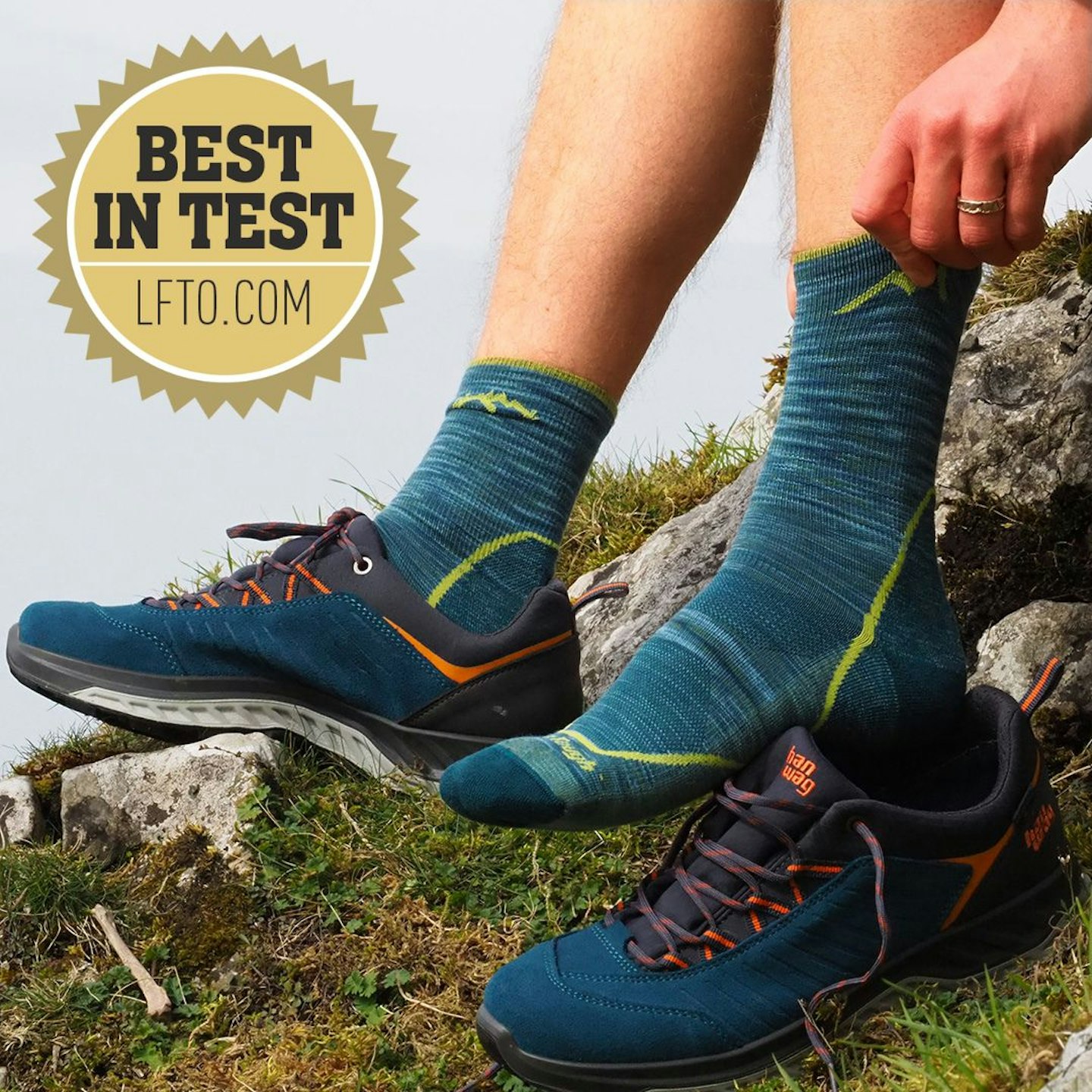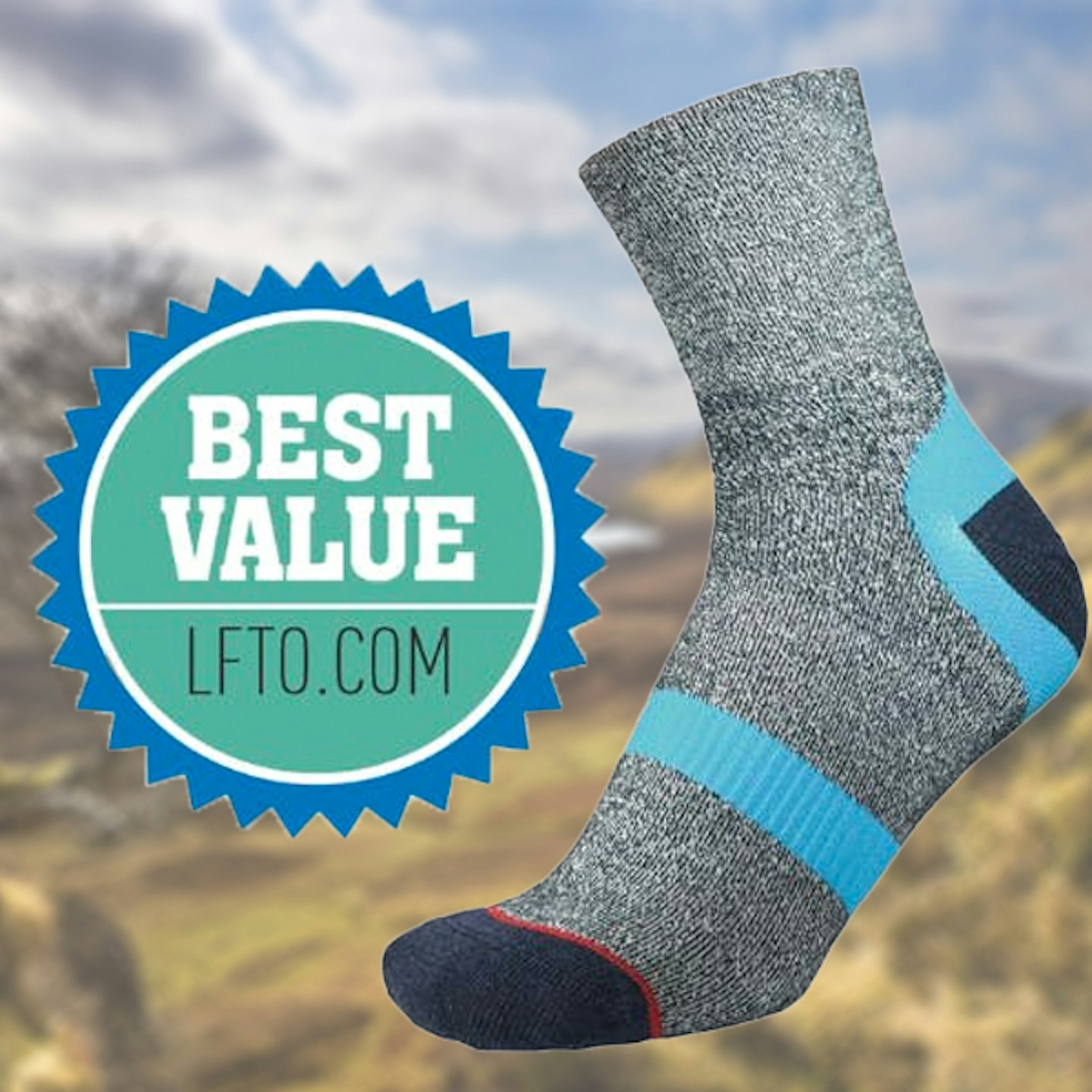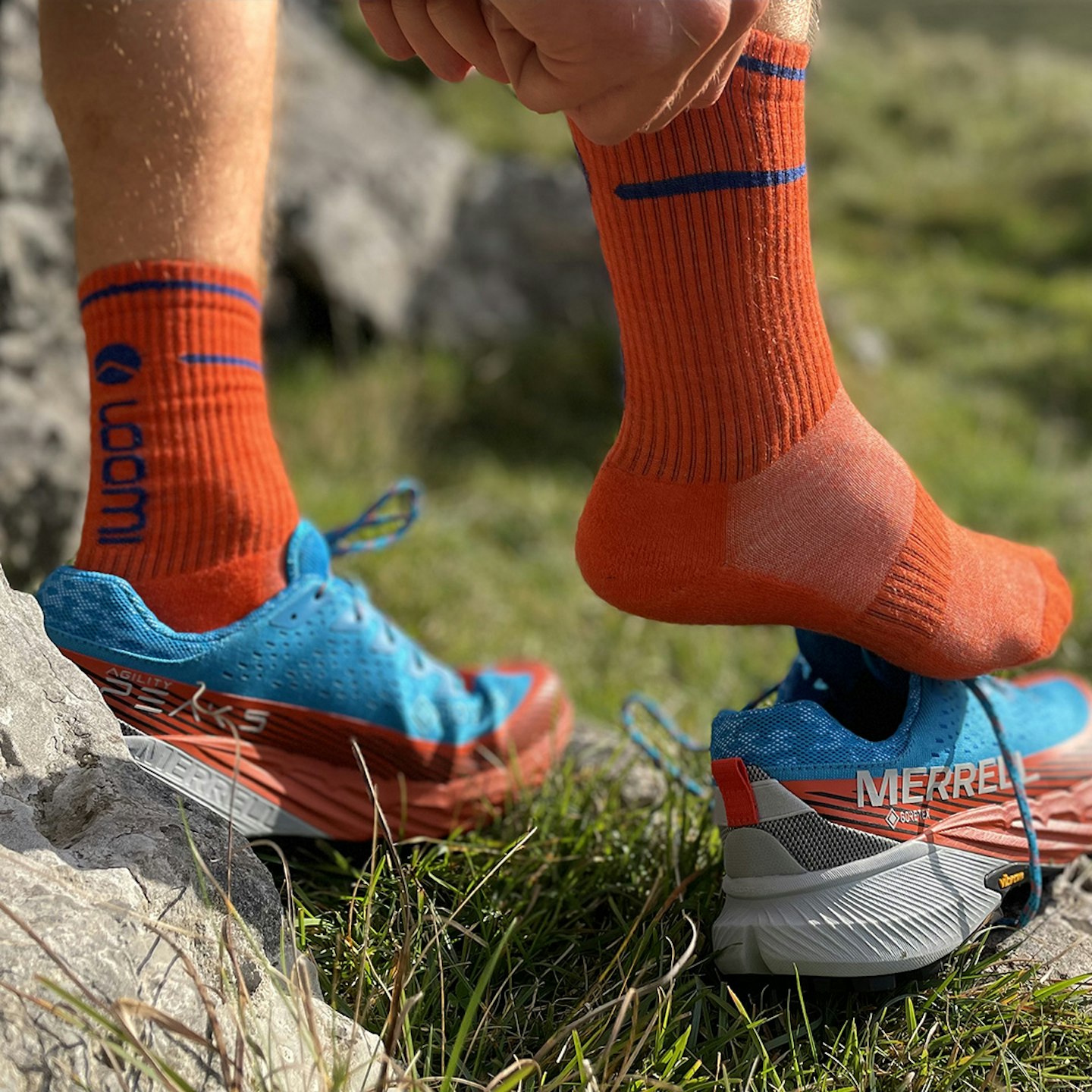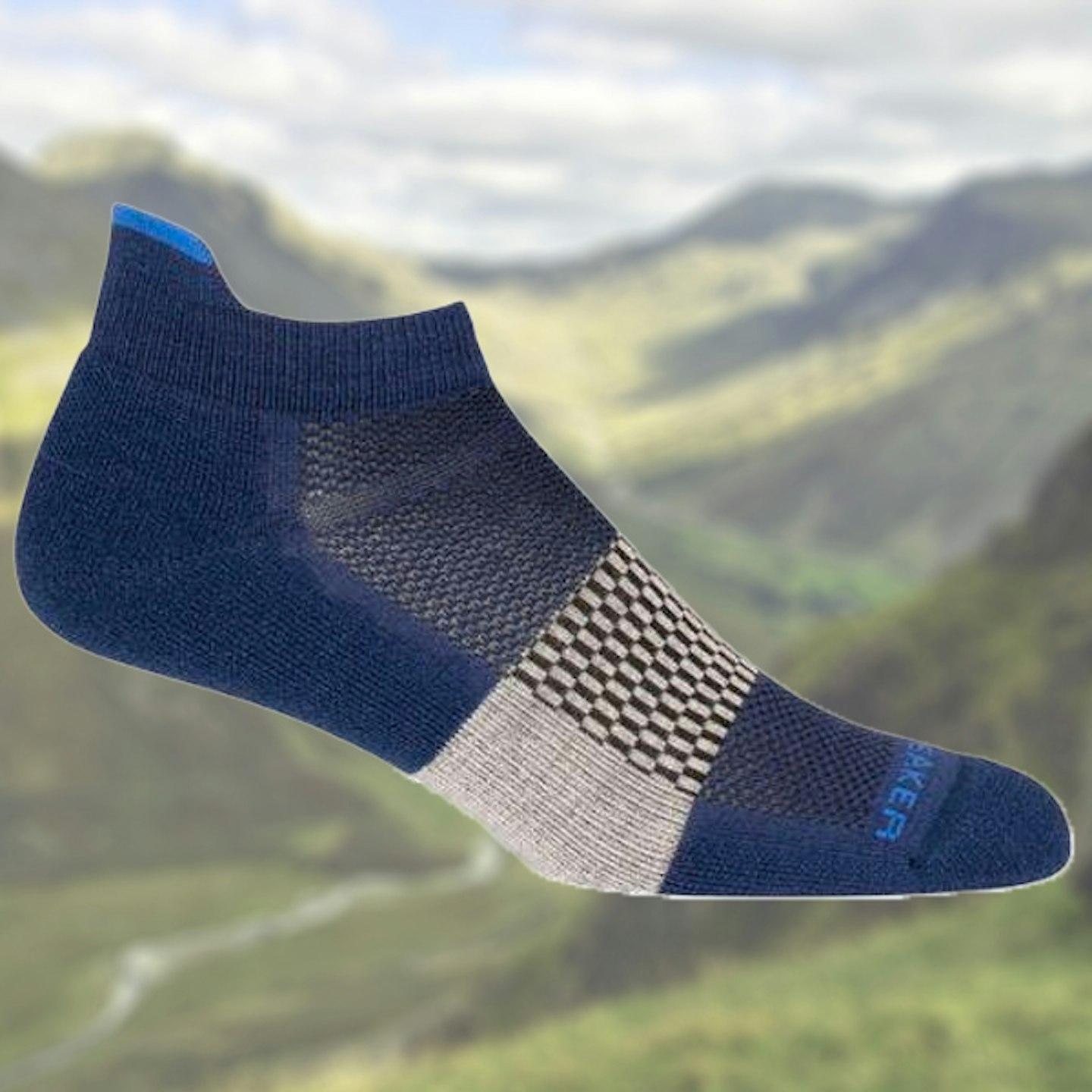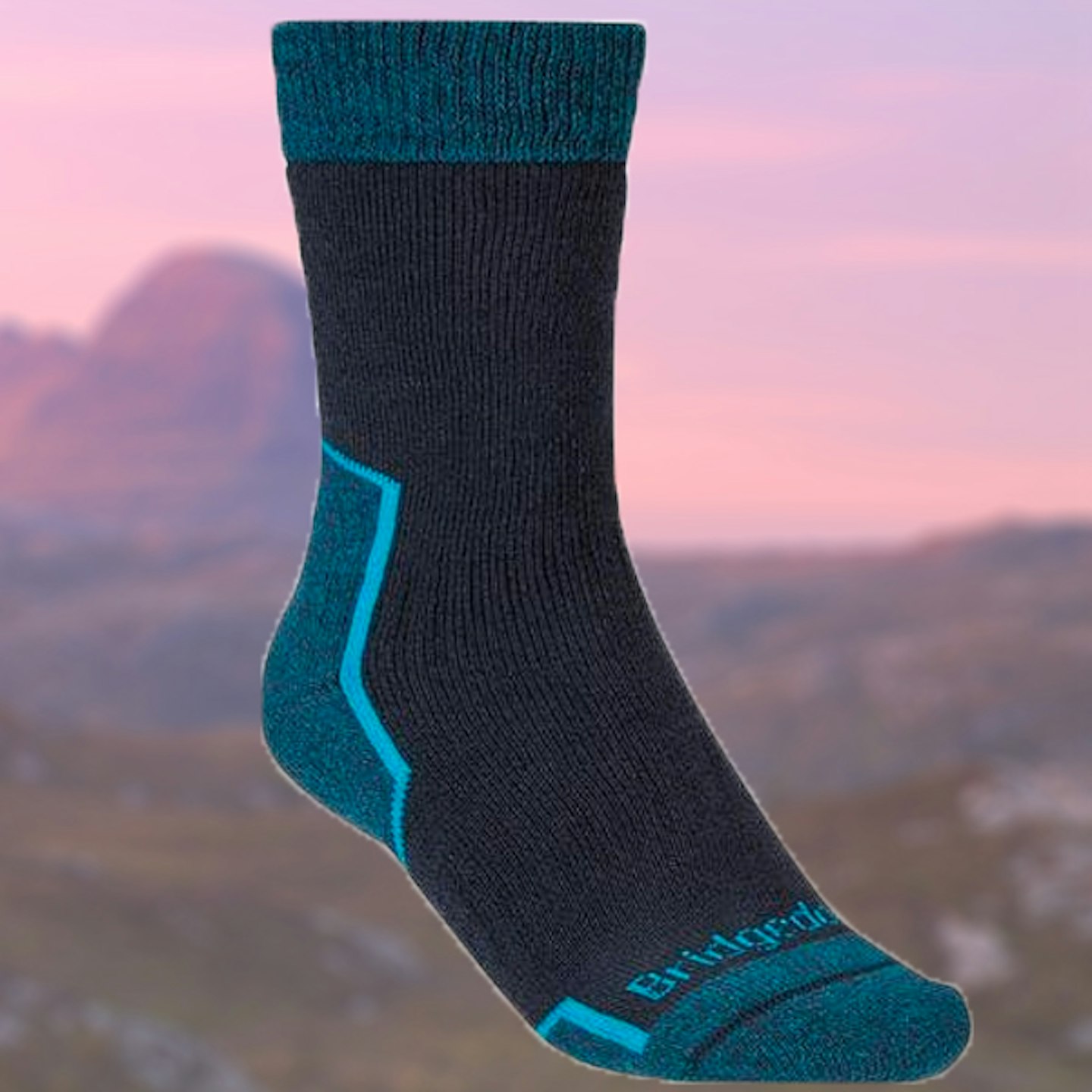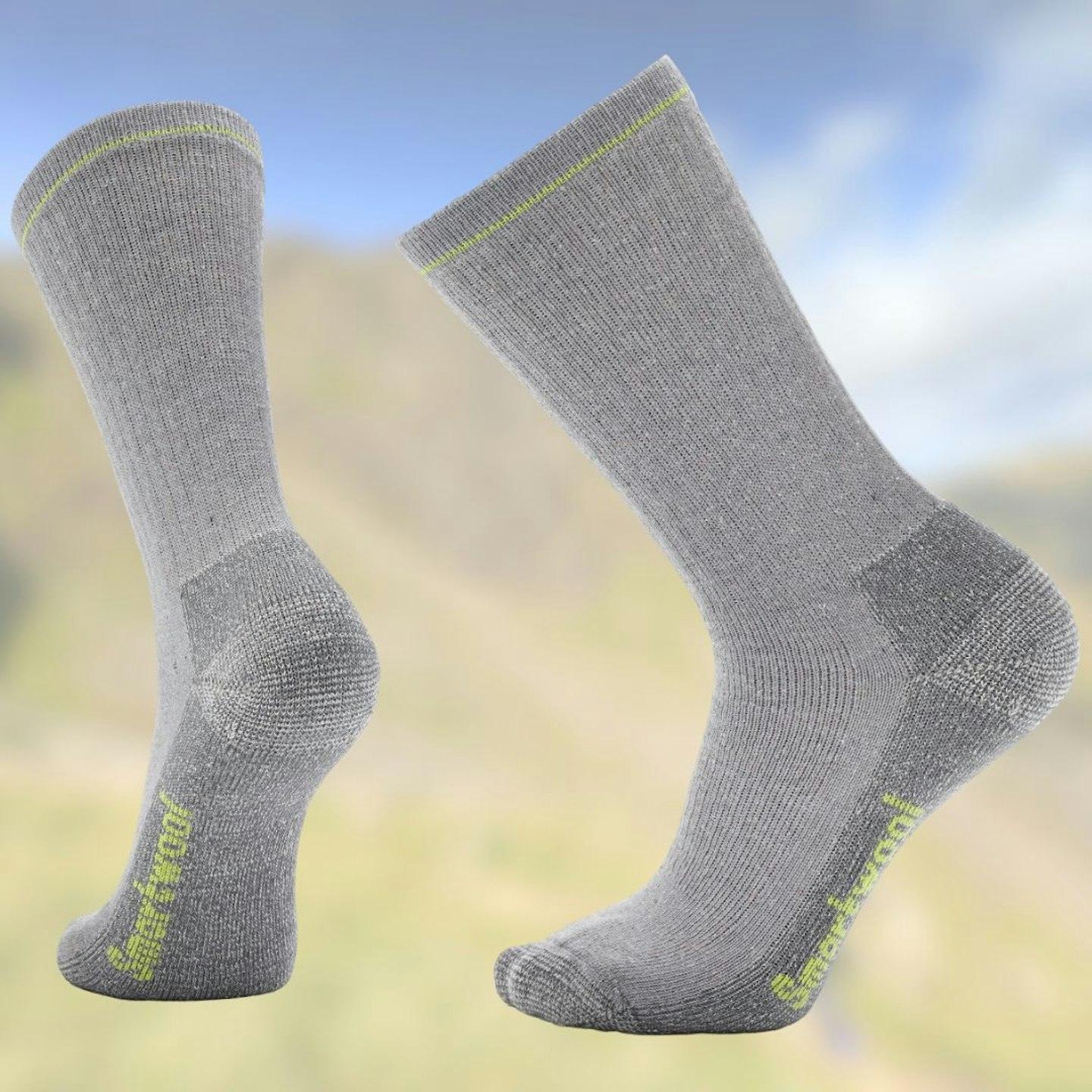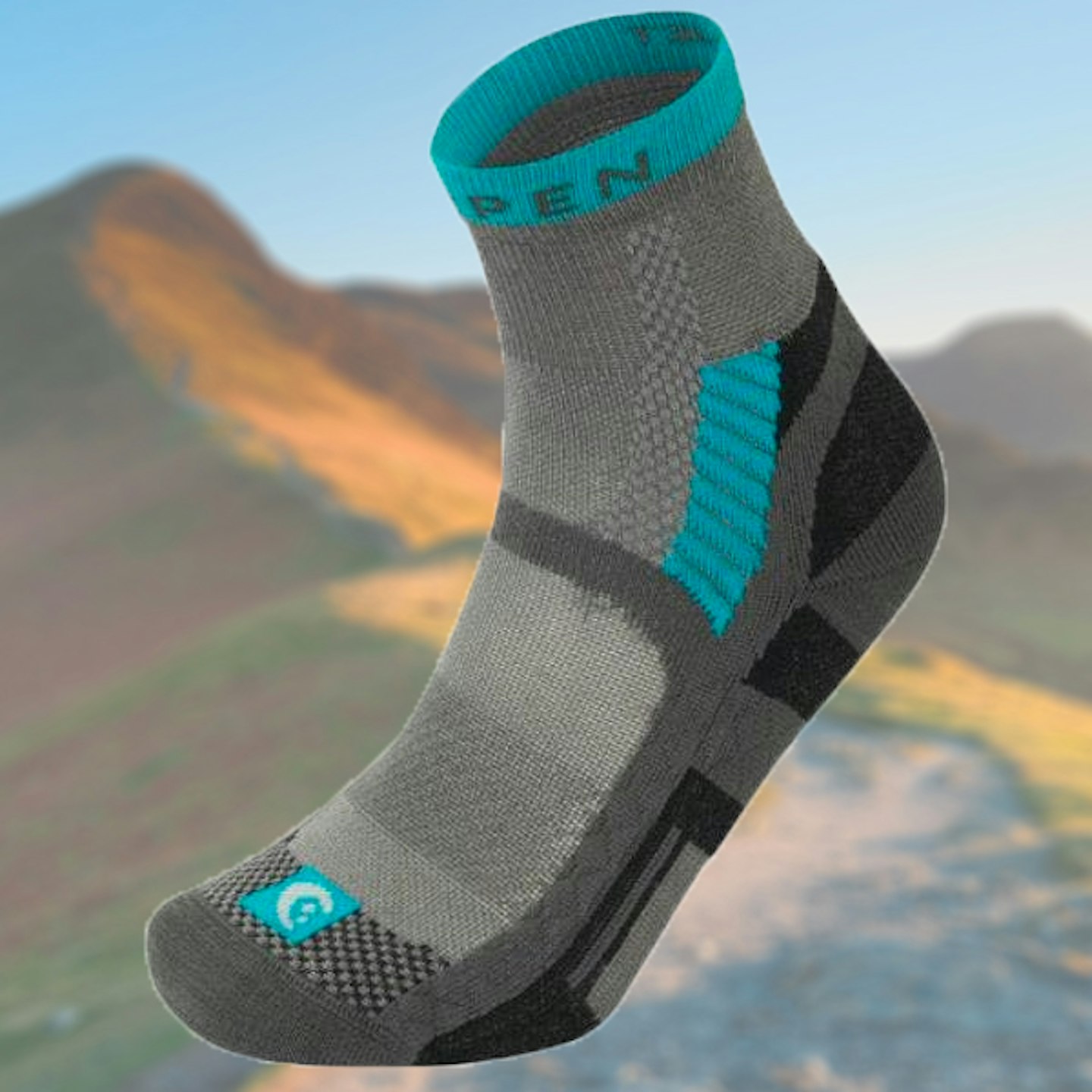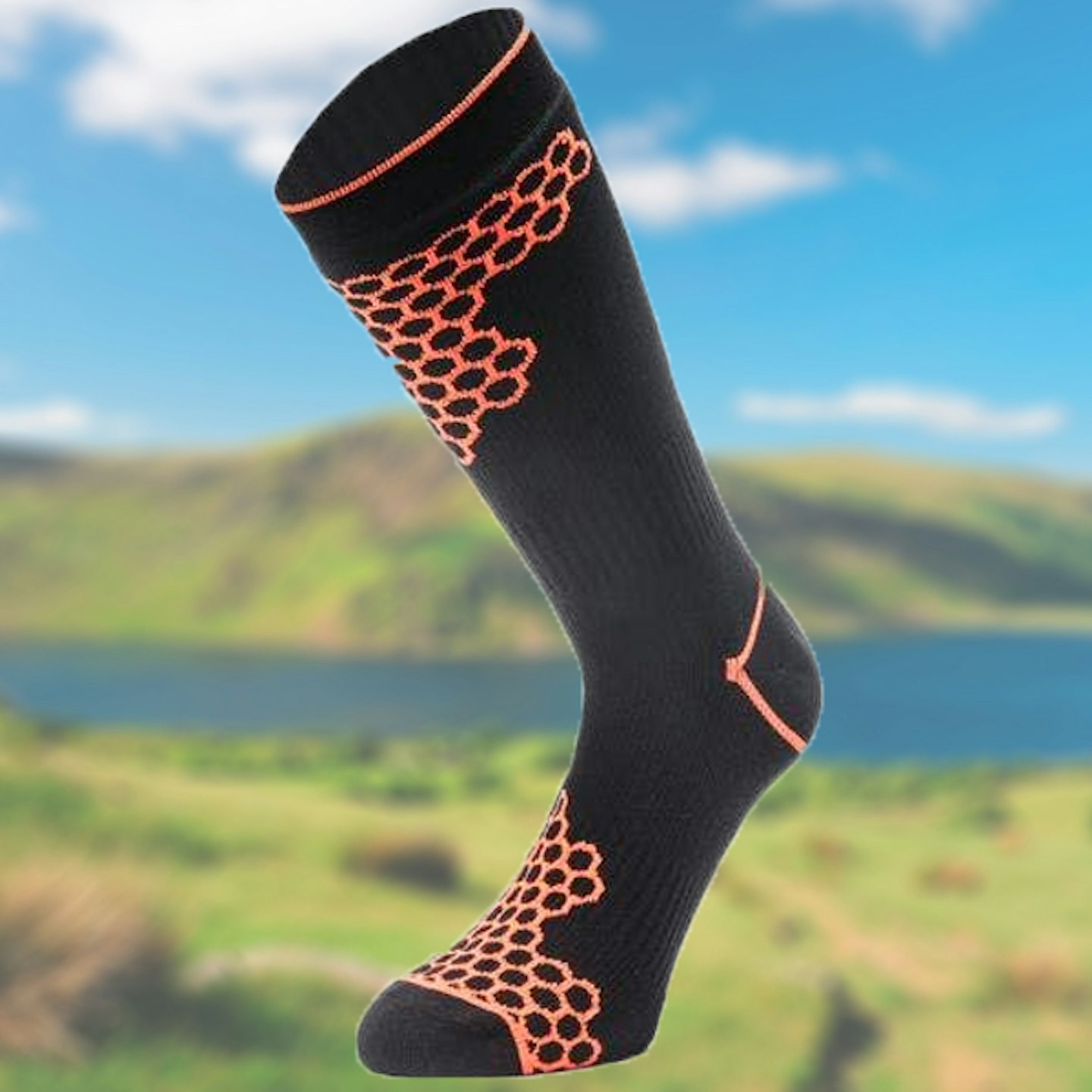The right walking socks depend on a number of factors, with season being a major one. If you're someone that goes out for treks in cooler and warmer months, you really ought to have the correct socks for each occasion. If you've tried doing a summer hike in thick winter socks, you'll know that's no fun, and the reverse is true too.
It's the same logic you apply to walking boots. You wouldn't use winter boots for fast summer day hikes or lightweight summer boots to tackle the CMD Arête in winter. We've put this guide together to help you not only know what to look for in walking socks but also to recommend our top-rated pairs.
Save up to 44% on walking socks in the Amazon Spring Sale

The Amazon Spring Sale is happening right now, which means there are some great deals to be had on walking socks and other outdoor kit. Here are our top picks of the best deals on socks:
Our top pick: Danish Endurance Terrain Expert Pro socks, WAS £39.95, NOW £22.45
Save 21%: Smartwool Classic Hike Merino Wool Socks, WAS £21, NOW £16.49
Save 33%: Danish Endurance Merino Wool Walking Socks, WAS £37, NOW £24.65
Save 20%: Smartwool Mountaineer Maximum Cushion, WAS £28, NOW £22.32
What are the best walking socks of 2025?
The walking socks recommended here all excel in different conditions, but they all have a couple of commonalities. One is that they're all very well made, the other is they're all very comfortable and don't invite blisters.
Best in Test: Darn Tough Light Hiker Micro Crew Lightweight With Cushion
Best Value: 1000 Mile Approach Repreve Double Layer Sock
Best for summer: Icebreaker Merino Multisport Light Micro Sock
Best for winter: Bridgedale Explorer Heavyweight Merino Comfort Boot Sock
How we tested the best walking socks
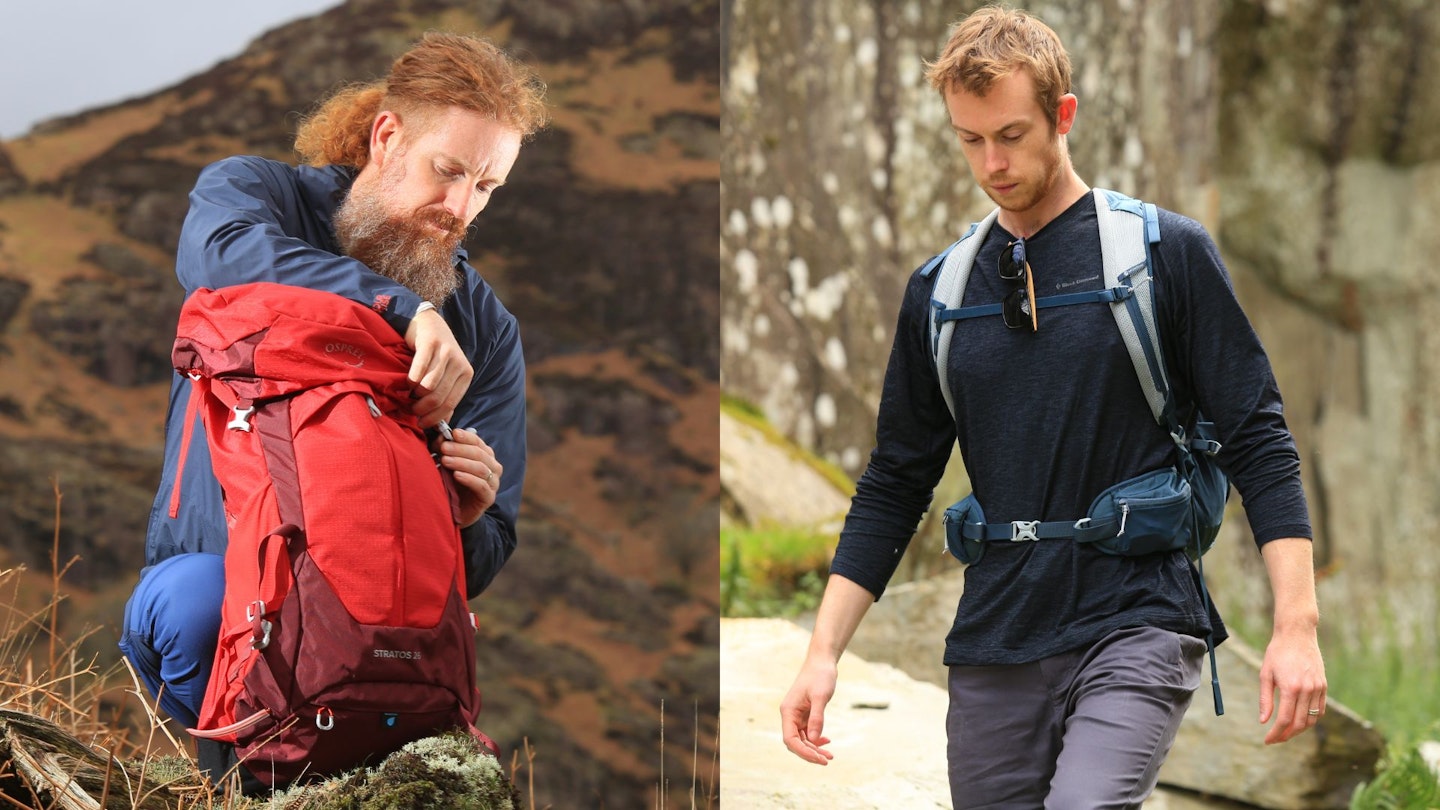
Although one of the least visible, walking socks are one of our most thoroughly tested items beacuse we use them on every single outing.
The socks recommended here were tested by Ben Weeks (left) and Chris Williams (right). Ben is the Gear Editor of our magazine, Trail, and is a qualified montain leader and climbing instructor. Chris is one of our staff writers and gear testers on LFTO and our resident Kiwi outdoorsman who also has several years' experience as a journalist and in the outdoor industry.
The best walking socks reviewed:
Heralding from Vermont, Darn Tough has some real fans of its socks on our team. This particular sock's fit is second to none, offering support and cushioning for all-day comfort without slippage or bunching.
It's made with a nylon-merino blend material, reinforced footbeds and Achilles cushioning, and their True Seamless Toe technology.
The Darn Tough (insert long-winded name here) Sock is a superb general-purpose sock, for use year-round.
Pros
- Durable
- All-day, all-season comfort
- Versatile
Cons
- No recycled material used
| Materials | 54% nylon, 43% merino, 3% Lycra |
Can you even call yourself a proper hiker if you've never had blisters? Truth be told, modern footwear makes it easier to avoid them, but a pair of anti-blister socks like this 1000 Mile Reprieve Recycled Sock will certainly help keep rubbing at bay.
The soft inner wicking layer is designed to move independently from the tough outer, ensuring any friction is between these layers rather than against your skin. With arch bracing and a heel-gripping design to prevent slippage, this 2-season sock is a great summer choice for preventing the dreaded hot spots.
Pros
- Includes recycled material
- Blister prevention
- Great value
Cons
- Darn Tough sock is more versatile
| Materials | Outer: 42% REPREVE nylon, 20% wool, 18% acrylic, 18% nylon, 2% elastane | Inner: 99% REPREVE nylon, 1% elastane |
Between this Scottish-made sock and the American Darn Tough sock, there's nothing in it. They're both brilliant.
Like the Darn Tough sock, this Loomi sock has a merino-synthetic blend that offers amazing durability and performance. We found it's not just breathable, it's temperature regulating, meaning it's suitable for use year-round.
The fit is unisex but there are three sizes to choose from, so it'll fit pretty much everybody.
Pros
- Good price
- Suitable for most outings
- Durable
Cons
- You might prefer a higher merino content
| Materials | 40% merino, 40% nylon, 18% recycled nylon, 2% elastane |
If this doesn't look like your regular hiking sock, it's because it isn't. To be clear, this lightweight multisport micro sock is not suited to year-round use or wearing with boots. But in warmer, drier conditions where you're wearing low-cut hiking shoes, it's perfect.
It's durable, wicking, and odour resistant, and despite the svelte build, it offers instep support for stability, Achilles support to keep the sock in place, and a seamless toe closure for improved comfort. Its low cut will also give you less ridiculous tan lines.
Pros
- Naturally odour-resistant
- Highly breathable
- Still features zoned construction
Cons
- Not suitable for use with boots
| Materials | 63% merino wool, 35% nylon, 2% Lycra |
Bridgedale is the undisputed king of UK hiking socks. Made just outside of Belfast (we've seen the factory – it's ace), you'll find Bridgedale socks hanging in almost every outdoor gear shop you walk into. It offers a sock for every season, and this model is aimed squarely at big days in tough conditions.
It offers excellent levels of warmth and cushioning, providing much-needed comfort on long, cold treks. With design features like flat toe seams, Y-Heel support, and reinforced ShockZones, it's little surprise Bridgedale remains so popular.
Pros
- Warm
- Breathable
- High level of comfort
Cons
- Darn Tough sock has higher merino content
- Too warm for hot days
| Materials | 45% Coolmax (polyester), 30% merino wool, 24% nylon, 1% Lycra |
Bridgedale might still enjoy the title of UK's favourite hiking sock brand but it doesn't have the monopoly it once did, as brands like Darn Tough and Smartwool encroach on its territory.
This Smartwool sock is very neat beacuse it's the brand's much-loved classic hiking sock, only now made with a blend of merino wool and recycled fibres sourced from Smartwool's sock take back program.
In terms of performance and comfort, this is a great general purpose hiking sock. A bit warm for hot days perhaps, but it's great for mild and cool days from day walks to multi-day treks thanks to a durable construction and full underfoot cushioning.
Pros
- Sustainabile construction
- Great for treks and cooler conditions
- Excellent comfort
Cons
- A bit warm for hot days
| Materials | 33% merino, 33% other fibre, 24% recycled nylon, 9% nylon, 1% elastane |
For those that like hiking almost year-round, this is such a good walking sock. It's made with a mixture of synthetic materials and applies the sort of know-how you'd expect from a nerdy technical sock manufacturer like Lorpen.
The T3 refers to the sock construction, consisting of CoolMax EcoMade and semi-synthetic Tencel. To aid breathability, it uses a more open-knit mesh. There is also heel and toe cushioning as well, despite this being classed as a 'light' sock by Lorpen.
Pros
- Very comfortable
- Highly breathable
- Low and crew heights available
Cons
- Not suitable for mid-winter
| Materials | 46% recycled nylon, 25% Coolmax EcoMade, 17% stretch nylon with Lycra, 12% Tencel |
If geckos wore socks, we're not sure they'd look like this. Luckily, these are for human feet, particularly the feet of humans who hate their toes getting wet or cold (and one tends to lead to the other).
The inner of the sock features a soft and comfortable Coolmax lining, while the tough outer is an abrasion-resistant nylon. And sandwiched between the two is a waterproof and breathable membrane, which keeps your feet dry.
This sock is overkill for general hiking (they get warm quick) but will earn their keep on tough wintery days.
Pros
- Waterproof
- Retains breathability
- Ideal for harsh winter conditions
Cons
- Quite specialist
| Materials | Outer 90% nylon, 10 elastic | Inner 70% Coolmax FX (polyester) , 30% nylon |
Why use special walking socks for hiking?
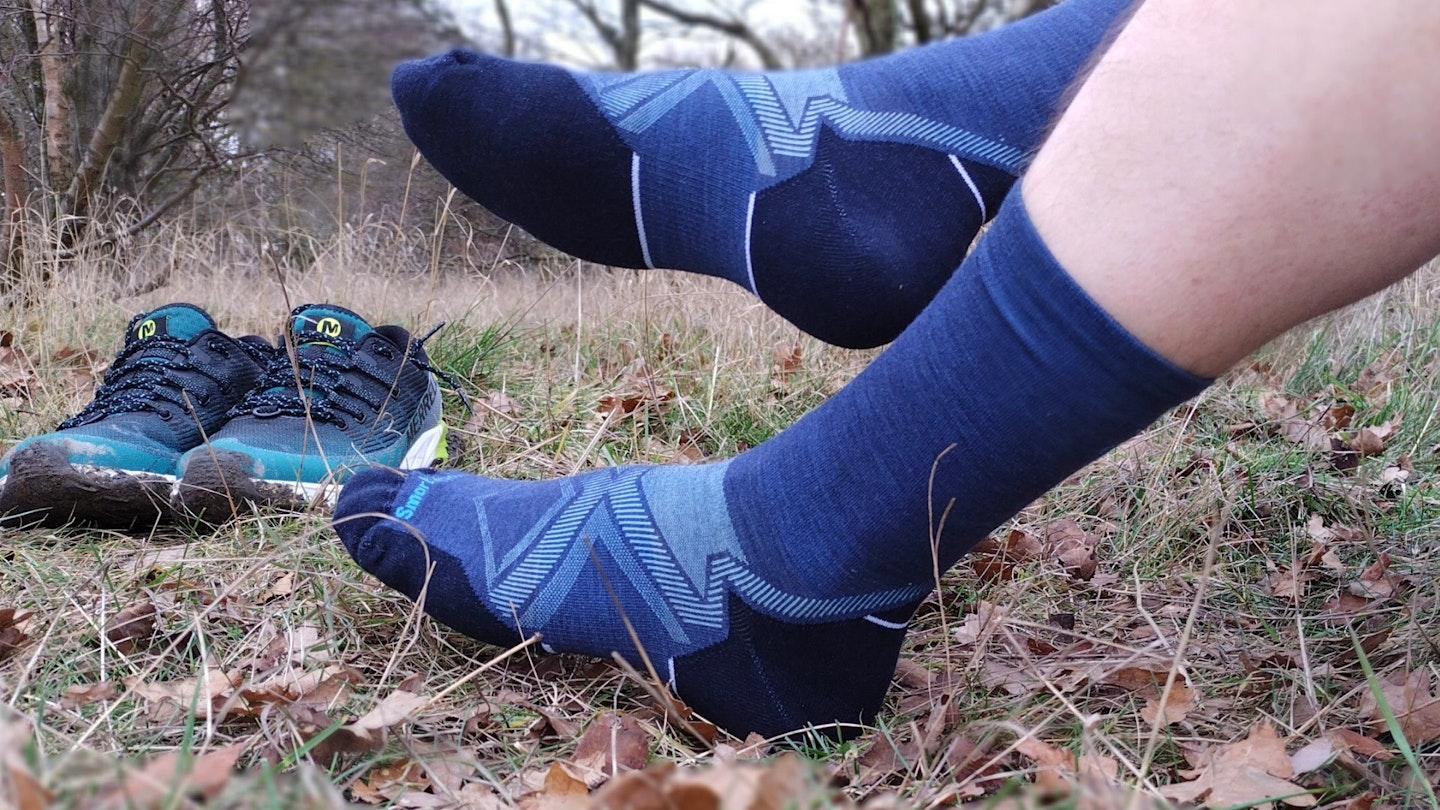
There are three main reasons. Firstly, for hiking in colder conditions, an everyday cotton sock will not keep your feet warm. In fact, it'll do the opposite. It'll sap heat from your feet and they'll get very cold. Merino and some synthetic materials can keep your feet warm even when the material itself gets damp.
Secondly, proper walking socks often feature carefully placed padding and other comfort features like flat seams. Additions like these help prevent blisters and keep your feet comfortable mile after mile.
Finally, walking socks are far more durable than their everyday counterparts. Types of construction like Nuyarn not only boost performance but durability too.
How to buy the right walking socks
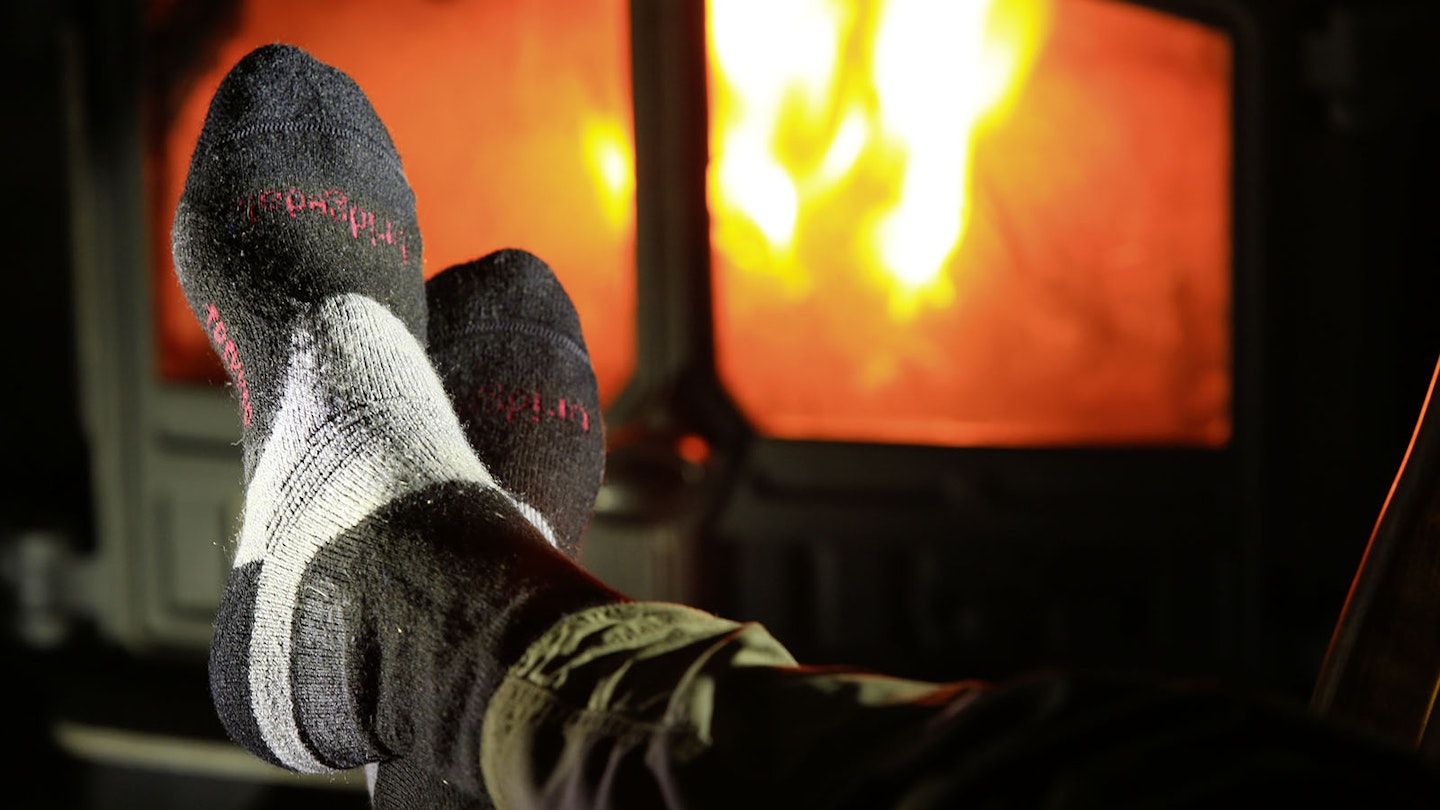
What materials are best for walking socks?
There are three common materials used for walking socks: merino wool, polyester, and nylon. Why? Merino wool is soft, lightweight, insulating, moisture-wicking, and very good at managing odour; polyester and nylon are great at transporting moisture away from the skin, and quite durable; and all three are good at keeping your feet warm even when the fabric is wet.
To get the benefits of all these materials, many walking socks are made with a merino-synthetic blend.
Avoid cotton socks for hiking. It holds onto moisture (including sweat), sapping body and causing discomfort.
What sock height is best for hiking?
This is a case of pairing your socks with your footwear.
Socks designed for use with walking boots tend to be around calf height to prevent rubbing between your shins and the boots' ankle cuffs. Ankle-height socks are suitable for use with hiking shoes or mid-height boots. Meanwhile, knee-high socks provide more warmth and insulation to your lower leg. Some also provide compression to improve circulation around your calf muscles.
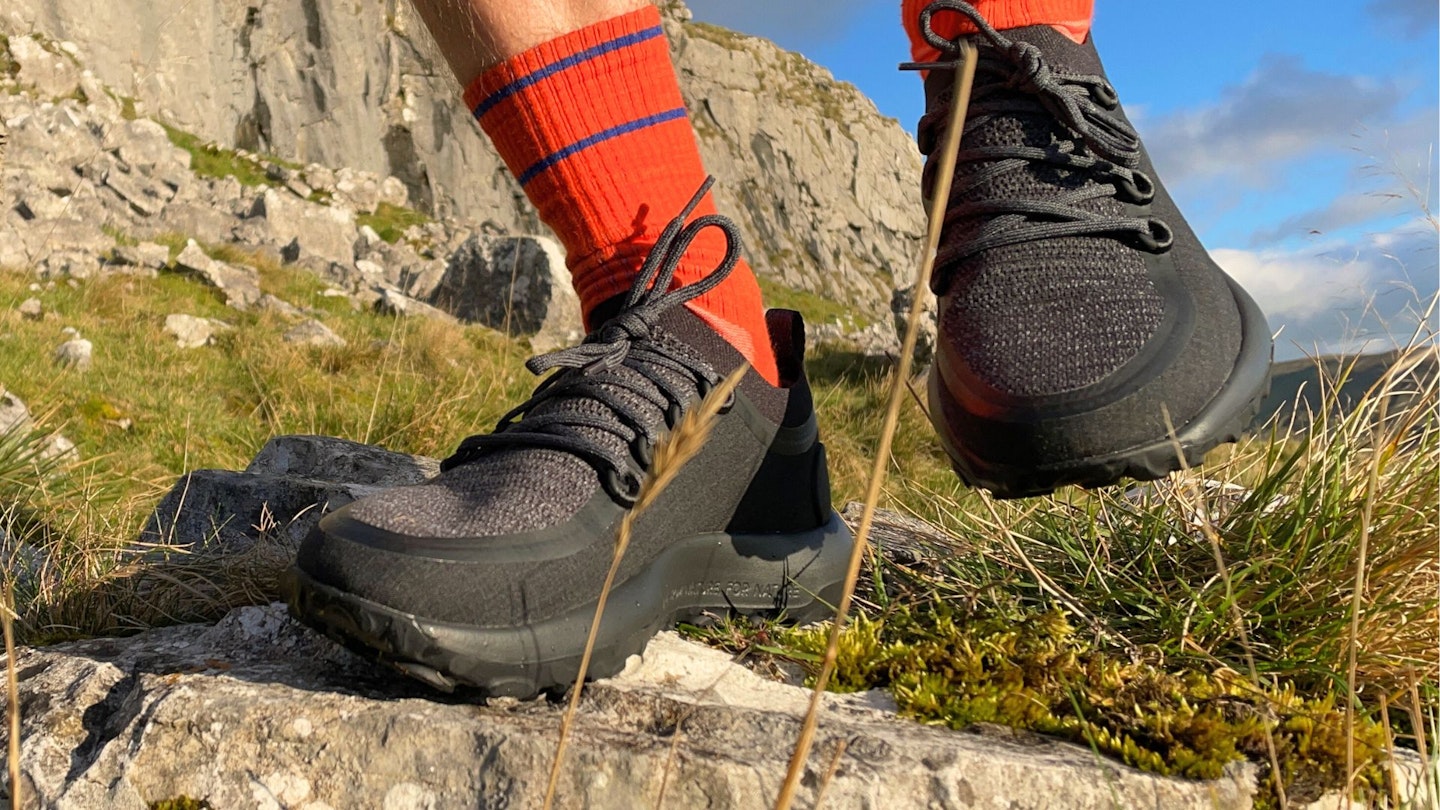
Is it better to get a slightly bigger or smaller sock size?
Sock sizes have a foot size range, so you shouldn't have an issue finding the right size. But if you're between sizes, or at the upper or lower end of a size range, it's generally best to round down. The reason being that if the socks are too big, they can ruck and wrinkle, which is annoying, uncomfortable, and potentially cause blisters.
That said, too small and socks can restrict circulation, leading to cold feet. Consider whether or not you intend to wear liner socks when choosing your size. Some socks are sold in shoe size ranges, while others will be sized as small, medium or large, so check size guides when buying.
Do walking socks have cushioning?
The ball of the foot, the heel and the Achilles are key pressure points on the foot. Cushioning in these areas, combined with light elastic compression, provides extra padding and support for long days on your feet.
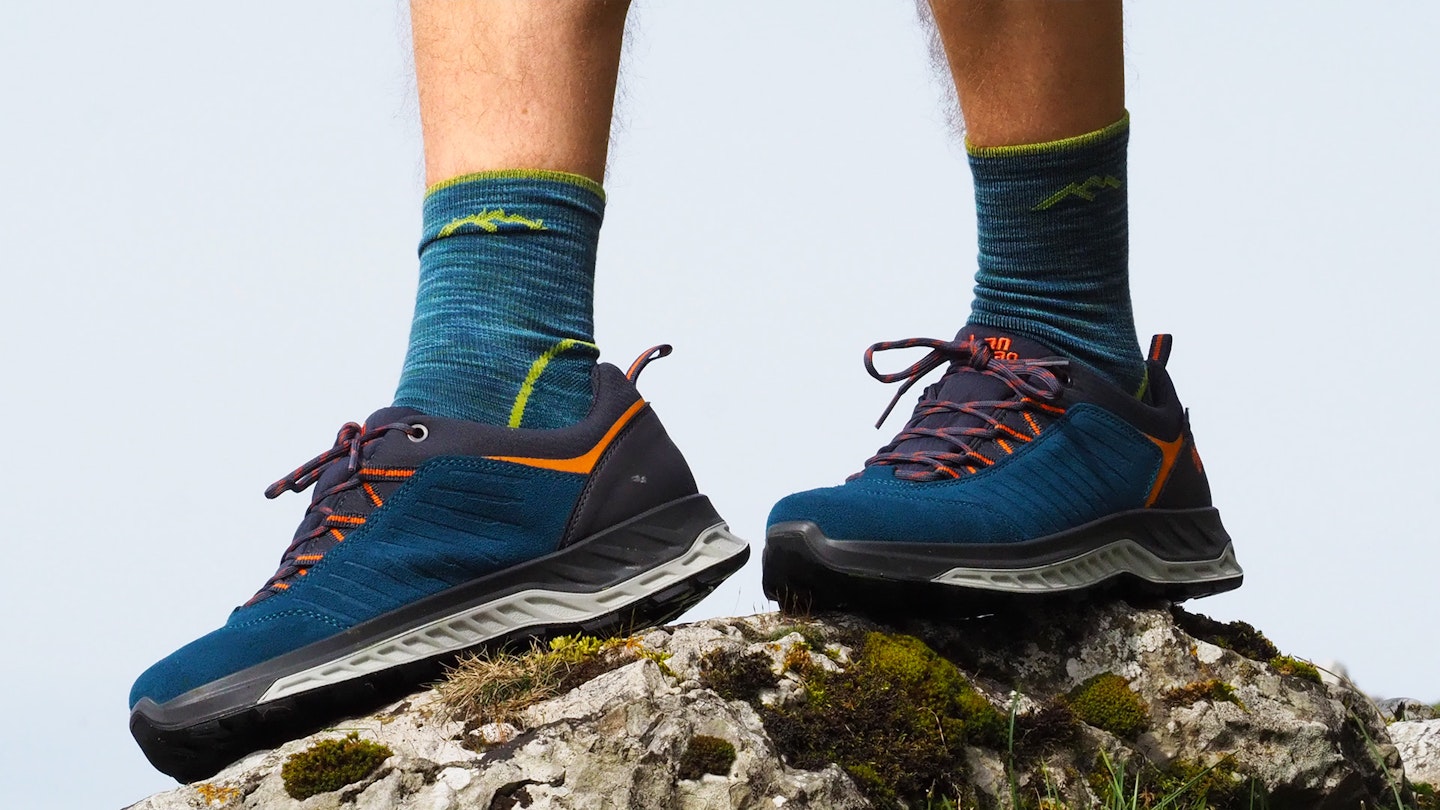
What other features should I look for?
Liners: Liner socks are worn under your main walking socks. They tend to be thin, highly wicking, and as seam-free as possible. This 2-layer system reduces friction between the foot and the boot to prevent blisters. Some socks have an integral liner built in, avoiding the need for a separate pair.
Seams: Seams can be points of friction leading to discomfort. The best walking socks are seamless or have flat seams to minimise rubbing and hot spots.
Waterproof: Most socks aren’t waterproof, but there are waterproof options available if that’s what you’re looking for. They often have a waterproof membrane, plus a wool liner for comfort and warmth. Waterproof socks aren't normally as comfortable as regular socks, and can be quite sweaty.
Always take a spare pair
There's nothing better than peeling off manky socks from an eight-hour hike and pulling on a fresh pair once you've completed the route or reached the camping ground.
About the author

Ben Weeks has been with Trail for over 10 years and is our main point of contact for all gear reviews. As well as being a hugely talented writer and photographer, Ben is also a qualified Mountain Leader and Climbing Instructor.

